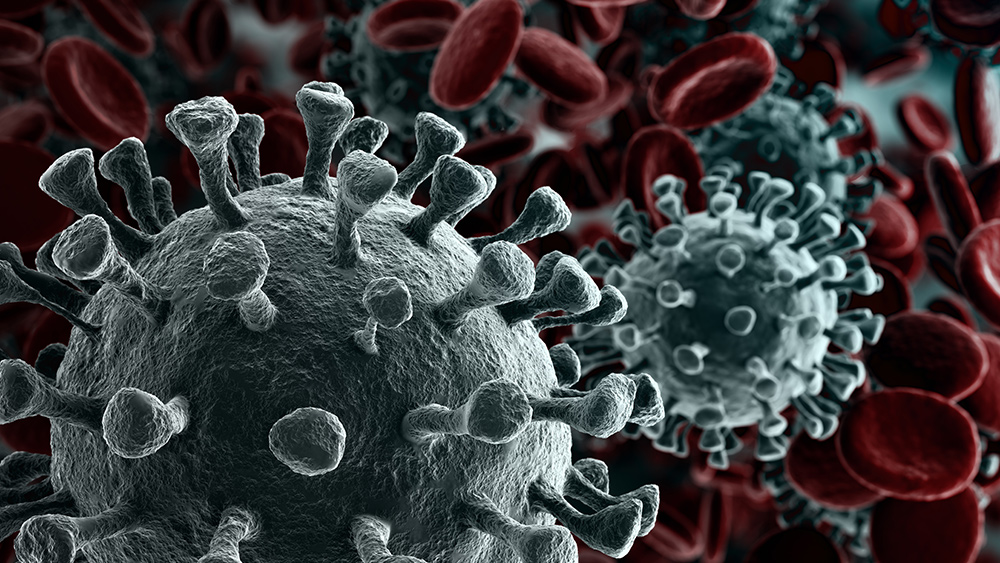Coronavirus found to cause blood clots in younger patients, increased risk of bleeding in at-risk patients
04/30/2020 / By Ralph Flores

Ever since the COVID-19 pandemic burst onto the scene, researchers have been working hard to learn everything about the deadly contagion. Now, two new studies suggest that COVID-19 can lead to different cardiovascular symptoms.
The first paper – out this week in the New England Journal of Medicine – proposes that coronavirus can increase the risk of stroke in patients under 50. The second study, published in the journal Physiological Reviews, observed that COVID-19 patients with preexisting conditions are more likely to die from bleeding disorders.
Coronavirus causes blood clots, stroke in young adults
Last week, Broadway fans were shocked to hear that actor Nick Cordero had his right leg amputated due to complications from COVID-19. The 41-year-old actor was reported to have struggled with blood clots while being on a ventilator. According to his wife, Cordero started having clotting issues on his right leg while he was hospitalized. When doctors treated him with blood thinners to fix the clotting issues, the drugs affected his blood pressure and caused internal bleeding in his intestines.
“He made it through the surgery, which is really big because obviously his body is pretty weak,” his wife, Amanda Kloots, said. “Hopefully he’ll just kind of relax and rest.”
A constellation of things that could go wrong
The actor’s recent complication with COVID-19 is one example of how severe infections can affect the body, according to medical experts. In fact, Dr. Thomas Oxley, a neurosurgeon at Mount Sinai Health System in New York, and his colleagues hinted at the possibility that younger adults who are asymptomatic or have mild COVID-19 symptoms face a greater risk of severe stroke.
In their paper, the team discussed how the hospital had seen a rise in the number of stroke cases in the past two weeks, especially in those under the age of 50.
“Our report shows a seven-fold increase in incidence of sudden stroke in young patients during the past two weeks,” Oxley told CNN. “Most of these patients have no past medical history and were at home with either mild symptoms (or in two cases, no symptoms) of COVID.”
Before the COVID-19 outbreak, Mount Sinai Hospital recorded a two-week average of 0.73 severe stroke patients under the age of 50.
While Oxley acknowledges that five people in two weeks is “certainly a small sample size,” other clinicians have reported similar trends. In Atlanta, critical care doctors have reported COVID-19 patients developing blood clots, even after being put on anticoagulants, while others have seen patients as young as 31 develop large blood clots in their brains. (Related: Experts: A balanced, optimal immune system is key to avoiding coronavirus.)
“The problem we are having is that while we understand that there is a clot, we don’t yet understand why there is a clot,” explained Dr. Lewis Kaplan, a physician from the University of Pennsylvania who was not part of the study.
“We don’t know. And therefore, we are scared.”
Patients with chronic illnesses more likely to die from bleeding disorders
A separate review from the University of Texas Health Science Center at Tyler posits that people with chronic illnesses have a higher risk of catching – and dying from – COVID-19 because of elevated levels of an enzyme involved in blood clots.
In their report, the team noted that people with preexisting conditions are more likely to become more sick when infected with SARS-CoV-2 compared to those who are otherwise in good health. In particular, COVID-19 patients who have chronic illnesses are more likely to die from hyperfibrinolysis, a bleeding disorder marked by the body’s overactivity to remove blood clots.
The researchers noted that people with preexisting conditions have elevated levels of plasminogen and plasmin – substances in blood cells that remove blood clots when activated. In their review, they noted that over 97 percent of COVID-19 patients admitted to hospitals had increased levels of D-dimer, a protein formed after a blood clot is dissolved.
Pandemic.news has the latest on the ongoing coronavirus pandemic.
Sources include:
Submit a correction >>
Tagged Under:
Blood clots, cardiovascular disease, coronavirus, covid-19, Flu, infections, internal bleeding, outbreak, pandemic, stroke, superbugs, symptoms, virus
This article may contain statements that reflect the opinion of the author
RECENT NEWS & ARTICLES
Infections.News is a fact-based public education website published by Infections News Features, LLC.
All content copyright © 2018 by Infections News Features, LLC.
Contact Us with Tips or Corrections
All trademarks, registered trademarks and servicemarks mentioned on this site are the property of their respective owners.





















